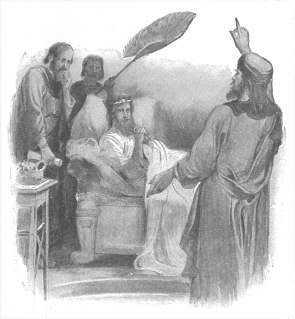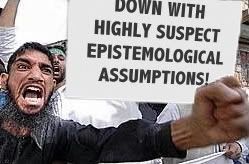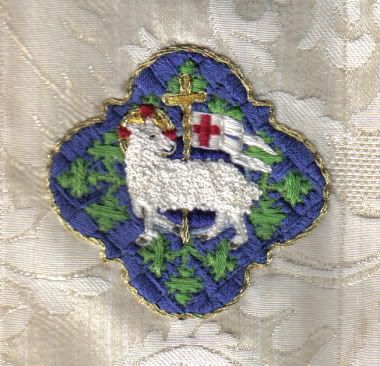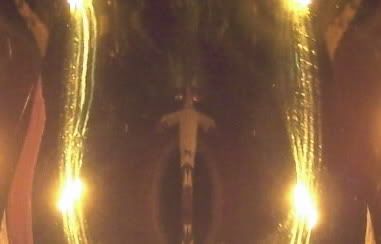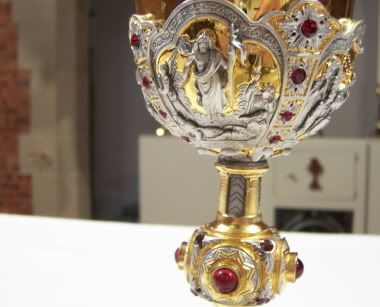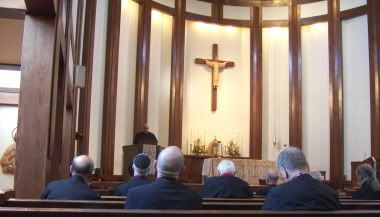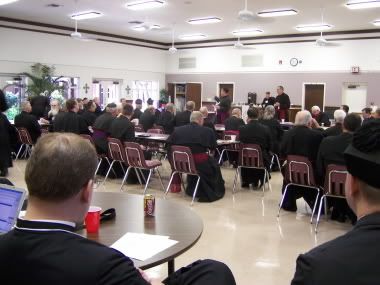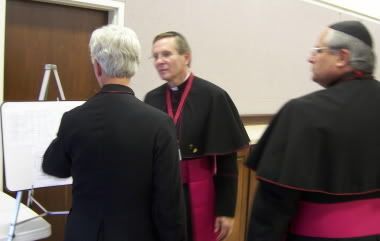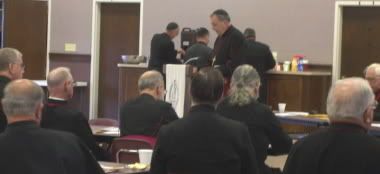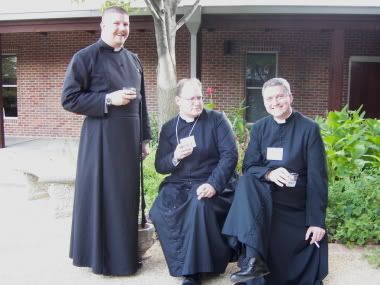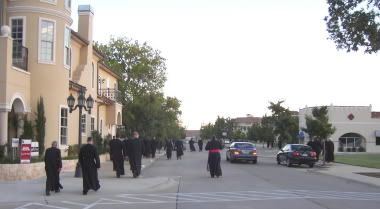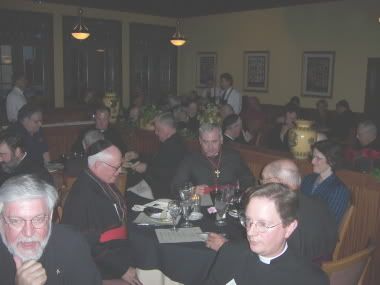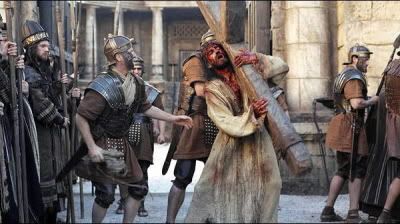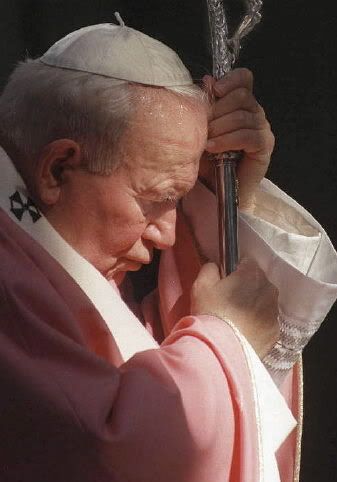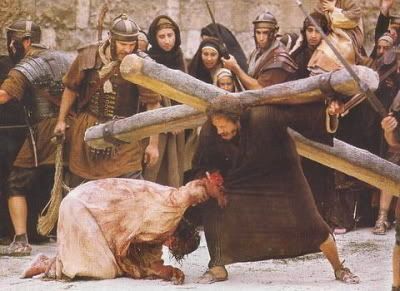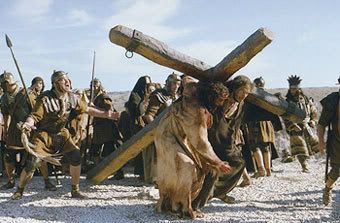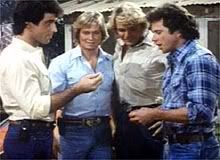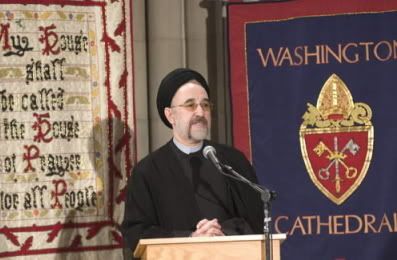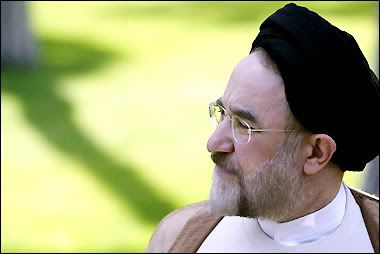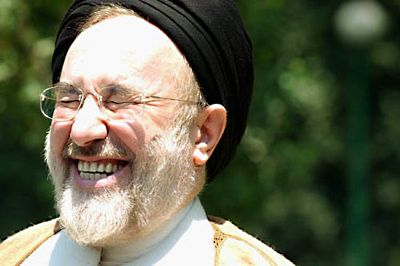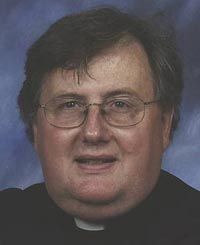 Homily for 3 September 2006--Yr B, Proper 17
Homily for 3 September 2006--Yr B, Proper 17“Graft in our hearts the love of your Name; increase in us true religion; nourish us with all goodness; and bring forth in us the fruit of good works.” I came across on
online discussion hearkening back to this week’s collect and lessons in which the priest suggested the nickname “True Religion Sunday.”
You might think that in a church, true religion would be second nature. But true religion doesn’t come naturally; the collect suggests our religion is in danger of becoming untrue, perhaps even false. All of us who hold the faith dear need to refresh ourselves on such basic concepts from time to time. Even within Christian churches, “religion” goes unappreciated. There is an increasing hostility towards religion, especially fundamentalism—of the Muslim, but also of the Christian variety. The idea of "religion" has become tainted with connotations of rigorism, intolerance, legalism, and even terrorism.
All of which lead toward an increasing sense in the public sphere that there may be such a thing as “too much" religion. Religion can be good—just don’t take it too far.
On the other side, are those evangelical Christian circles that cultivate
an open antagonism toward the idea of “religion”—all religion is false. The mantra is:
“Christianity is not a religion; it’s a relationship.” “Religion”
is dismissed as man’s poor attempt to create a substitute for what only God can provide—a personal relationship. While we sympathize with the underlying idea, we must also acknowledge that such a distinction is overly simplistic. Certainly, Jesus Christ is not anti-religious.
When I was serving as a chaplain at a VA Hospital one summer, the man driving the shuttle van once asked me, “Chaplain, isn’t it true that the Bible never uses the word religion?” I said, “No.” He asked, “Are you sure; that’s what my pastor says.” I suggested he tell his pastor read the first chapter of James. There we find the apostle, in correcting those who saw no need for their inner faith to manifest itself in outer works, admonished them with these words: “Religion that is pure and undefiled before God, the Father, is this: to visit orphans and widows in their affliction, and to keep oneself unstained from the world.”
James understood that living faith must be practiced, and carefully stated this in his letter. But he also understood that “true religion” is constantly endangered. It is in danger of being lost, forgotten, blurred, tainted, defiled. This is a danger that comes both from without and from within. Even Jesus once said, “When the Son of Man comes, will he find faith on earth?” (Luke 18:8).
What appreciation might we find in Scripture on the subject of true religion?
In the Book of Deuteronomy, Moses is giving his farewell address to the Israelites. It is time for them to cross over into the Promised Land on their own. They must remember all the lessons they have learned and be careful to keep their faith and practice pure and undefiled. As we heard today, Moses tells the people, “You shall not add to the word that I command you, nor take from it, that you may keep the commandments of the LORD your God” in this new land . . . “Keep them and do them, for that will be your wisdom and your understanding in the sight of the people” you encounter.
Moses knew that soon God’s people would be surrounded by others who knew neither the Lord, nor his divine will revealed in the Torah. The people would be tempted to compromise their faith and practice—to drop some things that might seem strange to the locals, and to add others that they saw and fancied among them. When Christianity began to spread, and the gospel entered different cultures, it became quickly evident that the Church would face the same problems.
In St. Paul’s letter to the Church in Galatia, he makes note of it at the beginning. He wrote, “I am astonished that you are so quickly deserting him who called you in the grace of Christ and are turning to a different gospel (not that there really is another one, but there are some who trouble you and want to distort the gospel of Christ). But even if we or an angel from heaven should preach to you a gospel contrary to the one we preached to you, let him be anathema” (that is, “accursed”).
Whenever the faith entered a new cultural context, it naturally adapts. That process is legitimate, but along with it comes the danger of distortion—the temptation to change the faith or to drop some elements and add others. The Christian experience in Europe, Africa, China, etc. should be different, but the substance of the faith has to remain the same everywhere. That’s not my own opinion—it’s the command of the Lord as we see in these statements of the Prophet Moses and the Apostle Paul. And so Paul says, in today’s epistle, “Be on guard, stand firm! Take up the shield of faith, the sword of the Spirit, the belt of truth, and the helmet of salvation.”
In all this, invoke the Lord’s protection, for there are spiritual forces at work. The devil and his cohorts would be more than delighted to see you loose your faith, or to see your religion become distorted, corrupted. St. Paul even asks for special prayers for himself—that when it’s time for him to stand up and preach the Word, that he may do it with boldness, without compromise or distorting the truth of the Lord’s message.
True religion is under outside pressure from each culture that surrounds it. We must also understand that true religion comes under pressure from the changing fads of that society’s evolving values and standards, from what German philosophers Herder and Hegel called the
Zeitgeist—the “spirit of the age.”
In extreme cases, in which the church becomes captive to the
Zeitgeist, Christian faith becomes reshaped by the culture—even identified by it. The most complete example of this is probably the movement called “Positive Christianity” in the German state church of the 1930s. This version of the faith (culturally captive to National Socialism) sought to uncover the historical Jesus who was argued to be a heroic Nordic Aryan figure, very outspoken in his criticisms of Judaism, who was eventually killed by the evil Jews, but who defeated them by his resurrection and triumphed over their evil schemes. (Talk about a distorted gospel!)
True religion is endangered by the outside culture in times and places. But in our gospel lesson today, Jesus reminds us that true religion is also endangered by forces within—within ourselves, within our hearts. In today’s gospel, personal preference had become the measure of both faith’s expression and the substance of faith itself.
The issue in question is that Jesus’ disciples didn’t wash their hands before eating. Therefore, the critics argued, Jesus’ disciples were eating with defiled hands and intentionally revolting against the “tradition of the elders.” We should understand that this purification ritual was an accepted part of Jewish life, taught by venerable Rabbis, but not actually a matter of divine Law or Torah.
Jesus uses the occasion to point out to them that their priorities are askew. While solidly within the bounds of Jewish tradition, they had not been faithful to Torah in that they had allowed the observance of human tradition to become more important than God’s Law. They had ignored Moses’ warning in our first lesson. They had added something to
God’s commandments.
Consider a possible parallel to our own day. We have many church traditions. On of the most prominent is the church kalendar, in which we follow the events of our Lord’s life through the year, celebrating the works of our salvation with feasts and fasts. In their proper role, these traditions help us embrace and live out the holy Tradition—the substance of the faith given to the apostles.
But what if things were to get out of balance? What if in our vanity, keeping feast days and fast days became more important than the great works in the life of Jesus which they commemorate? What if salvation were not seen to be something found in Christ, but something that comes from fasting and feasting?
We would end up with the same problem Jesus addresses in today’s gospel. It is the hypocrisy Isaiah describes with the words: “These people honor me with their lips, but their hearts are far from me.”
As he often did, Jesus turned his listeners back to the interior life, to look at the question again as a matter of the heart—as a matter of faithfulness. Does eating with dirty hands really defile someone in God’s eyes? Can anything they put in their bodies defile them? Or is faithfulness and purity perhaps better measured by what comes out of a man than what goes in?
Jesus said, “It is from within, from the human heart, that evil intentions come: fornication, theft, murder, adultery, avarice, wickedness, deceit, licentiousness, envy, slander, pride, folly. All these evil things come from within, and they defile a person.”
True religion is a genuine love of God and an acceptance of God’s love by an acceptance of God himself and Savior and Lord. It is to be intimately joined to Christ himself in his death and life. True religion is to live abundantly, to let Christ live within you.
True religion is a precious thing, and a wonderful gift from God. Yet we have so many things around us and within us that would steal away or destroy that amazing gift of our heavenly Father. And so, as St. Paul admonishes his flock, “Be on guard, stand firm!”
True religion is to be requested from the Lord and joyfully received. True religion is a precious gift to be cherished, protected, defended, and nurtured. True religion is a loving relationship with the living God, who saves us and makes us partakers of his own divine nature. True religion is a way of life, to be acted out in the world.
And so let us continue to come before the Lord with this prayer: “Graft in our hearts the love of your Name; increase in us true religion; nourish us with all goodness; and bring forth in us the fruit of good works;” in the Name of Jesus Christ. Amen.
